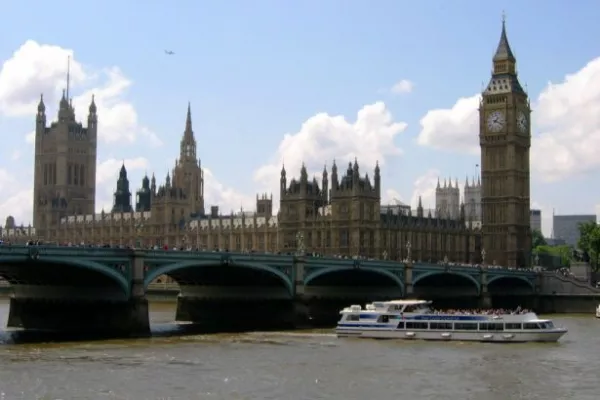London restaurateurs are looking to the future. And many don’t like what they see.
"As a restaurant operator, 2017 terrifies me,” said Russell Norman, co-owner of the Polpo, a popular mini-chain of Italian restaurants. "It really could be a perfect storm."
London’s dining scene is arguably more vibrant and successful than it’s ever been, and by one measure, at least, 2016 was a record year for openings. Many chefs think business will still improve this year, but they see strong headwinds.
First there was Britain’s vote on 23 June to leave the European Union, which sent chefs into a spin: Restaurant owners rely heavily on hosts, waiters, and cooks from Spain, Italy, and France, and they fear Brexit will mean restrictions on the right to work in the UK.
When the British pound tanked after the vote, restaurants had to pay more for imported food and wine. Some wine prices have increased as much as 10 per cent, Norman says, and certain staples, such as olive oil, are at their highest prices in years in the UK.
Now they will have to swallow another increase: higher property taxes, known as business rates, that kick in in April. The size of the increase varies. The bill for Café Murano in Covent Garden, for example, will jump 46 per cent, to £157,000 ($196,000). In Hoxton, Merchants Tavern’s bill will advance 27 per cent, to £70,000.
Some restaurants will be passing costs along to diners or squeezing other expenses where they can find pennies to save, said Chris Yates, managing director of Angela Hartnett restaurants, which include Café Murano and Merchants Tavern. "Why do you think we don’t see uniforms, tablecloths, etc., in restaurants any more?" he said.
Des Gunewardena, whose D&D London group owns more than 25 London bars and restaurants, said he could be facing a tough year.
"The reality of the Brexit deal is going to emerge," he said. "There is a lot of pressure of costs on all fronts. The impact of the property-rates revaluation and the increasing cost of staff are likely to have as much, if not more, impact than the rising cost of ingredients."
Gunewardena said that corporate spending still increased last year but was noticeably less than exuberant. "If people are concerned that their business may be badly affected, they are not going to throw swanky parties," he said.
Restaurant managers are most worried about their staffing, though there’s little hard evidence that they’ll have trouble hiring. While it may be too soon to tell, there are some signs: Figures released Wednesday from the Office for National Statistics showed that the number of EU workers in the UK fell the most in five years during the final three months of 2016.
Galvin at Windows, atop the London Hilton on Park Lane, employs more than 70 people as hosts, waiters, bartenders, and other front-of-house positions. Two are British. At Grain Store, in King’s Cross, it’s eight out of 70. At the Wolseley, on Piccadilly, 62 per cent of employees are from Europe.
"I wonder what will happen," said Fred Sirieix, the French-born general manager of Galvin at Windows. "I still cannot find any British people. It is not a profession people think of doing. It is seen as subservient."
Jeremy King, whose Corbin & King group owns several of London’s most fashionable restaurants, including the Wolseley, the Delaunay, and Zedel, is just as worried.
"Brexit has had a terrible effect on the morale of our European staff," he says. "Many have felt unwelcome in the country and have left. Let there be no misunderstanding: The absence of free movement across Europe will be a disaster for the hospitality industry."
One restaurateur who remains upbeat is Leonid Shutov. He owns the fancy Bob Bob Ricard in Soho, where diners can press a button at their table to order an emergency bottle of Champagne. He’s planning to open a 400-seat restaurant in the City financial district.
How does he feel now that JPMorgan Chase & Co., HSBC Holdings Plc, and other banks are starting to outline plans to move staff overseas? Very relaxed, it seems.
He’s not even concerned about the employment situation, though he estimates that about 80 percent of his staffers hold foreign passports.
“I'm not worried,” he says. “I’m sure the UK and the EU will come up with a fair and equitable agreement that allows migration and is in everyone’s economic interest.”
Let’s hope so.
Article by Richard Vines, chief food writer for Bloomberg









